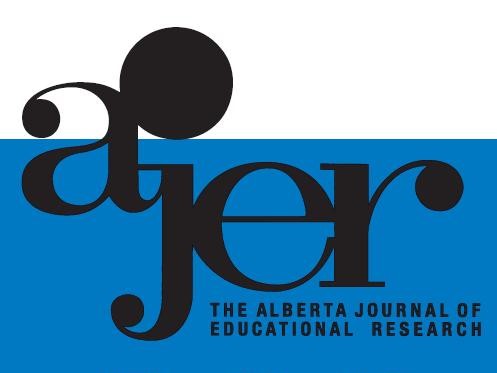Teachers’ Experiences on Refugee Education and Their Views on Refugees’ Social Inclusion: Case of Turkey
DOI:
https://doi.org/10.55016/ojs/ajer.v69i4.72810Abstract
This study had two aims: first, to reveal the experiences of educators who work with refugee students in Samsun (Turkey); and second, to divulge the views these teachers have on the social inclusion of refugees. The research was designed using a case study approach; 18 individuals participated in the research, who were selected from 12 schools within the criterion sample. A semi-structured interview form was utilized to collect data, which were analyzed using a content analysis approach. Some participants indicated that some refugee students were indifferent toward their lessons, would act in violent ways at school, experienced academic inadequacies, and possessed language and communication issues. Other teacher-participants pointed out that refugee students suffered from discrimination at school. In a general sense, the participants had a positive attitude towards refugee social inclusion, and they believed that refugees should be given employment opportunities; but refugees should also learn about Turkish culture and values. The study concluded that an equal distribution of refugees across schools and residential areas is necessary and that organizing events where refugees and Turkish citizens can join together provides the whole society with opportunities to learn about multiculturalism, which in turn can accelerate social inclusion.
Keywords: Refugee, immigrant, social inclusion, discrimination, access to education.
Cette étude avait deux objectifs : premièrement, révéler les expériences des éducateurs qui travaillent avec des étudiants réfugiés à Samsun (Turquie) ; et deuxièmement, rendre compte des points de vue de ces enseignants sur l'inclusion sociale des réfugiés. La recherche a été conçue selon une approche d'étude de cas ; 18 personnes ont participé à la recherche et ont été sélectionnées dans 12 écoles de l'échantillon de référence. Un formulaire d'entrevue semi-structurée a été utilisé pour collecter les données, qui ont été analysées à l'aide d'une méthode d'analyse de contenu. Certains participants ont indiqué que certains étudiants réfugiés étaient indifférents à leurs cours, agissaient de manière violente à l'école, présentaient des lacunes scolaires et avaient des problèmes de langue et de communication. D'autres enseignants-participants ont souligné que les étudiants réfugiés souffraient de discrimination à l'école. D'une manière générale, les participants avaient une attitude positive à l'égard de l'inclusion sociale des réfugiés, et ils pensaient qu’on devrait offrir aux réfugiés des possibilités d'emploi, mais que ceux-ci devaient aussi apprendre la culture et les valeurs turques. L'étude conclut qu'une répartition égale des réfugiés dans les écoles et les zones résidentielles est nécessaire et que l'organisation d'événements où les réfugiés et les citoyens turcs peuvent se rencontrer donne à l'ensemble de la société l'occasion d'apprendre le multiculturalisme, ce qui à son tour peut accélérer l'inclusion sociale.
Mots clés : réfugié, immigrant, inclusion sociale, discrimination, accès à l'éducation.
Downloads
Published
Issue
Section
License
UNIVERSITY OF ALBERTA COPYRIGHT LICENSE AND PUBLICATION AGREEMENT
If accepted, authors will be asked to sign a copyright agreement with the following points:
A. Where there is any inconsistency between this Copyright License and Publication Agreement and any other document or agreement in relation to the same subject matter, the terms of this Agreement shall govern.
B. This document sets out the rights you are granting in relation to publication of your article, book review, or research note entitled (the “Article”) through inclusion in the academic journal titled Alberta Journal of Educational Research (the “Journal”) published through the Faculty of Education, representing the Governors of the University of Alberta (the “Journal Editor”).
C. There will be no payment to you for this publication and grant of rights. In consideration of the agreement to publish the Article in the Journal:
1. You are warranting that:
- the content of the Article is your original work, and its content does not contain any material infringing the copyright of others; or, where the Article is not entirely your original work, you have obtained all necessary permissions in writing to grant the rights you are giving in this agreement;
- the content of the Article does not contain any material that is defamatory of, or violates the privacy rights of, or discloses the confidential information of, any other person;
- the Article has not been published elsewhere in whole or in part, and you will not allow publication of the Article elsewhere without the consent of the Journal Editor;
- the names of all co-authors and contributors to the Article are:
2. You agree to license the copyright in the Article to the Journal Editor, on a worldwide, perpetual, royalty free basis; and to the extent required by the terms of this agreement. You shall retain the right at all times to be acknowledged as the/an author of the Article.
3. You further agree that the Journal Editor has the entitlement to deal with the Article as the Journal Editor sees fit, and including in the following manner;
- The right to print, publish, market, communicate and distribute the Article and the Journal, in this and any subsequent editions, in all media (including electronic media), in all languages, and in all territories, ing the full term of copyright, and including any form of the Article separated from the Journal, such as in a database, abstract, offprint, translation or otherwise, and to authorize third parties to do so;
- The right to register copyright of the Journal;
- The right to edit the Article, to conform to editorial policy as the Journal Editor sees fit.
4. If any co-author or contributor to the Article does not sign this agreement, the Journal Editor reserves the right to refuse to publish the Article.



